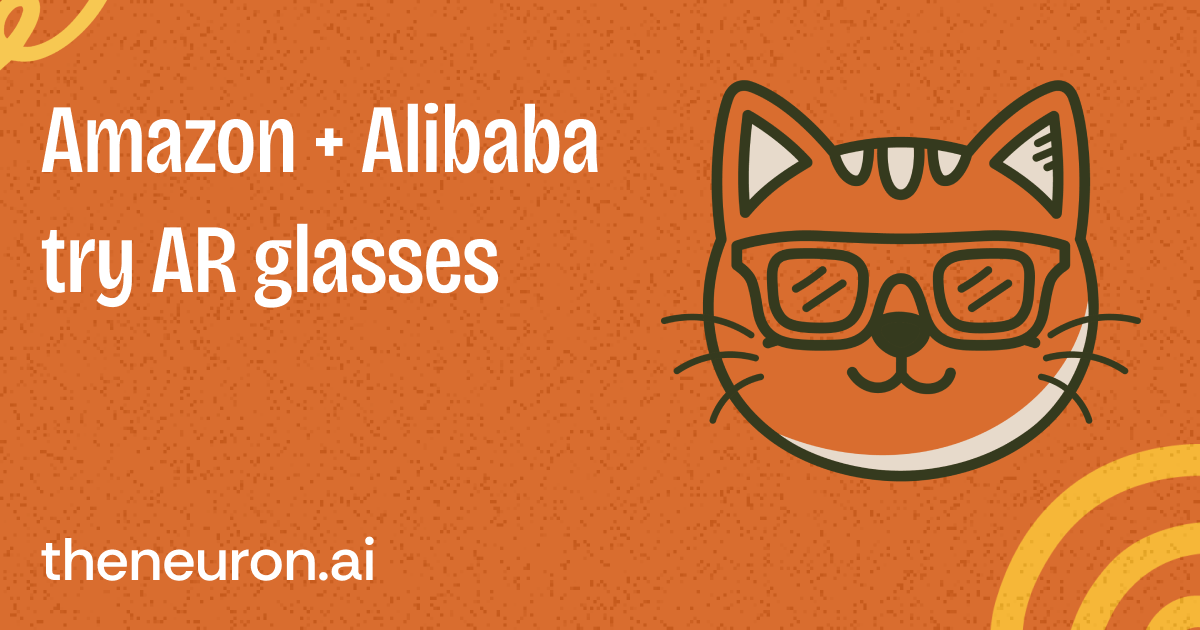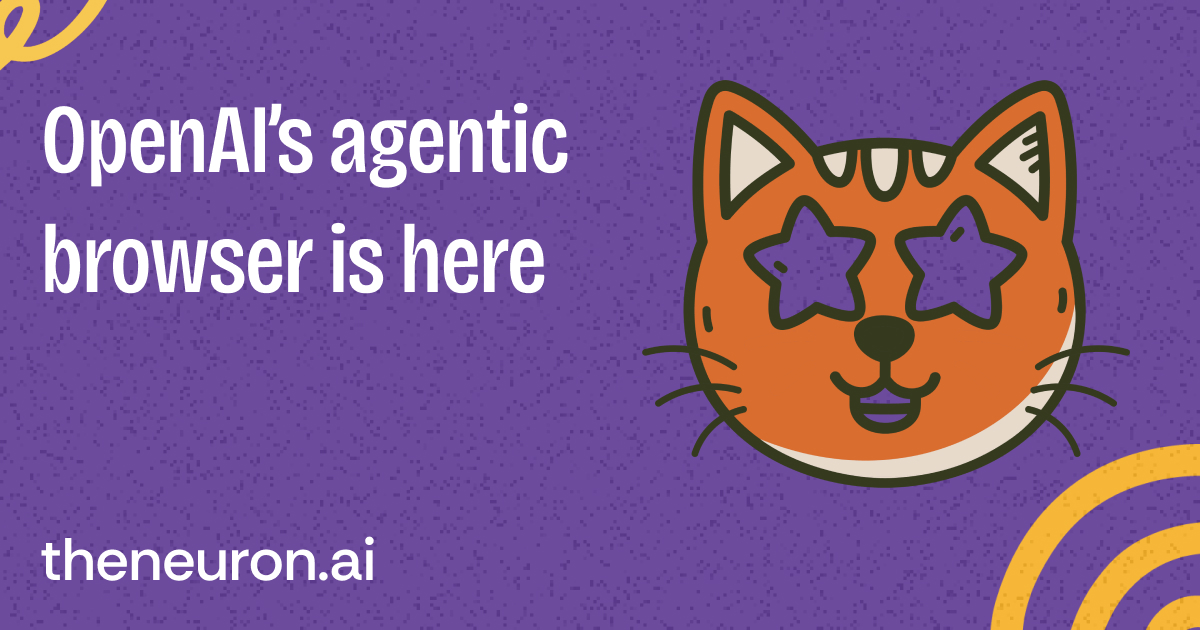Welcome, humans.
Someone finally accomplished the impossible: giving The Polar Express's nightmare-inducing CGI a modern makeover via AI (and just in time for the holidays, too!):

Tom Hanks' character still has mad uncanny valley vibes… some things even AI can't fix…
Someone else did this with Spirited Away, and it turned out pretty awesome as well:

In case you’re wondering about the latest news in AI video land, looks like there’s a new model called Vidu 1.5 that’s worth checking out. The cat video on their landing page MIGHT be the cutest thing we’ve ever seen…
Here’s what you need to know about AI today:
- AI giants pivot to agents while prepping for massive infrastructure builds.
- Qwen2.5-Coder matched top AI models in coding tasks.
- Perplexity began testing ad content.
- OpenAI released student writing guidelines.

Data centers, computer use, and agents, oh my!
The biggest story of the past two weeks was the apparent plateau in AI scaling laws at OpenAI (basically not improving as fast). It turns out, it’s not just OpenAI—Google’s feeling the pain, too.
As all the major AI companies are admitting to diminishing returns from bigger models, they're also planning some of the biggest computing builds in history. What gives?
Refresher: this so-called plateau in the IQ of AI models is hitting against multiple limits simultaneously:
- Quality training data availability (only 300T tokens total).
- Fundamental architectural limitations.
- Brutal economics (OpenAI is burning $4B a year!).
- Physical infrastructure limits (power, cooling).
Yet somehow, OpenAI just pitched the White House on building a $100B data center that would:
- Span 30 million square feet (520 football fields!).
- Need 2 million GPUs.
- Require 5GW of power (most data centers use ~100MW).
And Elon Musk just built Colossus—a supercomputer that freaked out his competitors—in 122 days instead of the usual 4 years.

And when we say freaked out, we mean flying spy planes to gather intel-level freaked out…
Now why would Sam Altman be so scared of Elon’s big build-out if scaling and compute aren’t still important?
The answer might be that today's plateau exists because the infrastructure isn't ready for what's needed next. They'll need gigawatts of power (Colossus only has 150MW), and Anthropic's CEO says AI clusters could cost $10B a pop by 2026.
NVIDIA's trying to help with their new Blackwell GPUs that promise 2.2x better performance. But at $70K per chip and a 12-month waitlist, even if Blackwell makes everything faster and more efficient, it doesn't address the core challenge of throwing more compute at the same architectural approaches that are yielding smaller improvements.
So what happens if scaling really has plateaued?
Ilya Sutskever (who just left OpenAI) thinks we're entering an "age of wonder and discovery." Instead of just bigger models, companies are exploring:
- More processing time during use.
- Multiple possibility generation in real-time.
- Expert-curated data.
- Multi-step reasoning (like in o1).
The ultimate confirmation? Everyone's building computer-controlling AI agents. In fact, OpenAI's planning to launch “Operator” in January—an AI agent that controls your computer. Google's testing its own version for a potential December release, and Anthropic released its own in October.

FROM OUR PARTNERS
Here’s why we like Attention for sales and meeting call summaries—and why you will, too.

We've been testing Attention for our sales + internal calls lately, and wow—we’re actually obsessed.
Here’s how it works:
- Attention listens to your calls in real-time, taking notes on topics you request.
- You identify key data you want from calls, and Attention finds the relevant info.
- Once it’s done, you can go back and watch the relevant sections of your call.
Why do we love it? No more scrambling to remember key talking points or frantically taking notes mid-call. We can “be present” (as the gurus say) without worrying about recording every detail, because we know Attention’s got our back.
And Attention can do much more, too.
Book a demo and try it out for yourself here.

Treats To Try.

- *Metronome helps you power your AI business with usage-based pricing (UBP)—the revenue model behind industry giants like OpenAI. You can join Metronome's upcoming webinar to learn all about UBP best practices from top UBP experts. Sign up here—even if you can't attend live, register anyway to get the recording!
- After a 13-year wait, Apple's new Final Cut Pro 11 uses AI to automatically isolate objects from videos without green screens, generate captions from speech, and enhance your footage with intelligent color adjustments.
- Vocera tests and monitors your voice agents by simulating thousands of customer conversations and alerting you when something goes wrong.
- Koncile extracts and organizes important details from your business docs so you can analyze your spending and spot billing errors.
- PearAI is an open-source code editor to ask questions about your code, make changes, and look up solutions inside VSCode.
- DeepL translates text instantly between 33 languages and helps you write better in your target language…and they just launched a voice version called DeepL Voice to translate conversations in real time.
- RambleFix converts your voice recordings into polished written content.
See our top 51 AI Tools for Business here!
*This is sponsored content. Advertise in The Neuron here.

FROM OUR PARTNERS
🎬Attention, video creators! Ready to show off your skills and win $10K?
Heads up, AI spielbergs—want a chance to win $10K? D-ID's AI DREAMS 2024 Creator Competition is ON! Use D-ID’s AI tools, share your vids, and take your shot at incredible prizes.

Around the Horn.

Try a demo of it in action with Artifacts (to actually test your code in action) here.
- Qwen2.5-Coder just launched as a new open-source coding assistant that matches Claude 3.5 Sonnet and GPT-4o's performance on coding tasks.
- Perplexity will begin to test ads in the U.S. this week—they’ll take the form of “sponsored follow-ups”, like “How can reading The Neuron improve my understanding of AI?”
- The Wall Street Journal experimented with AI summaries called Key Points, which uses bullet points to summarize the piece.
- OpenAI released a “Student’s Guide” to writing with ChatGPT without having GPT write the whole thing for them. Good luck with that!

Thursday Trivia
One is a real, and one is AI. Which is which? (vote below!)
A.

B.

Which is AI?
The answer is below, but place your vote to see how your guess compares to everyone else (no cheating now!)
A.
B.
Here are the results from last week’s trivia (A was AI):


A Cat's Commentary.



.jpg)

.jpg)









